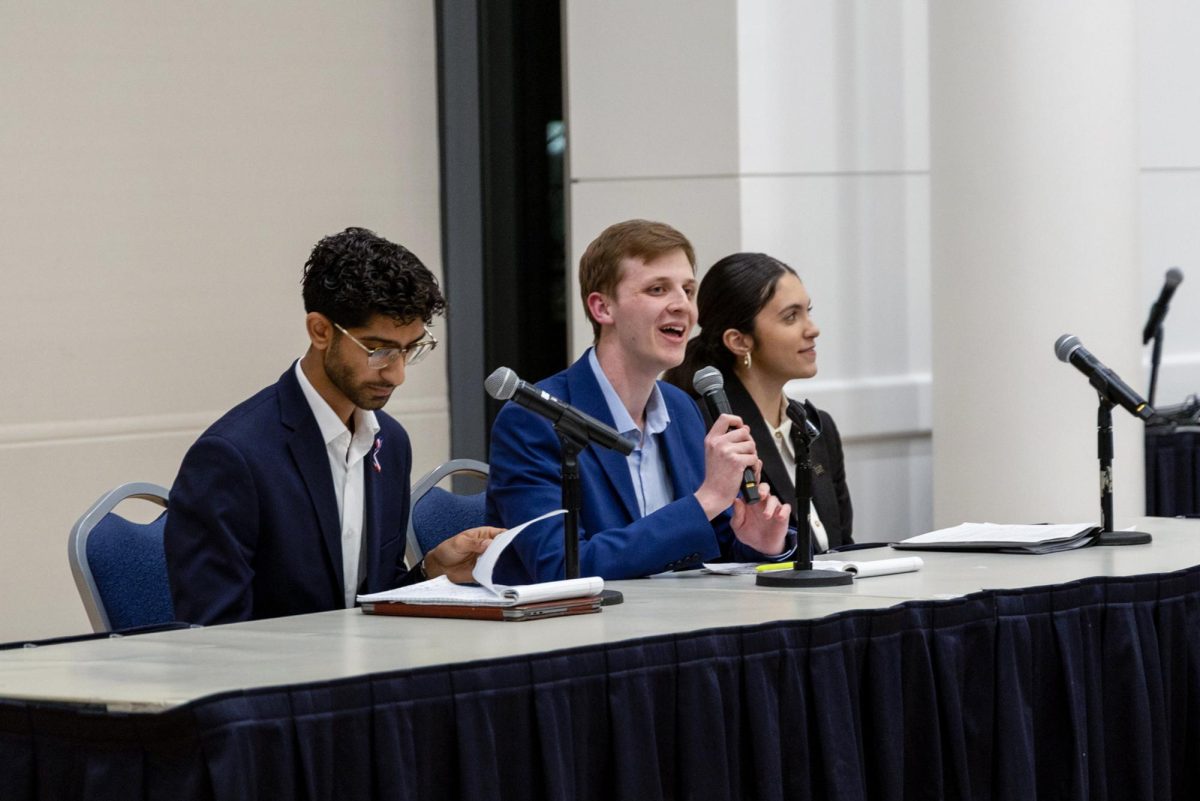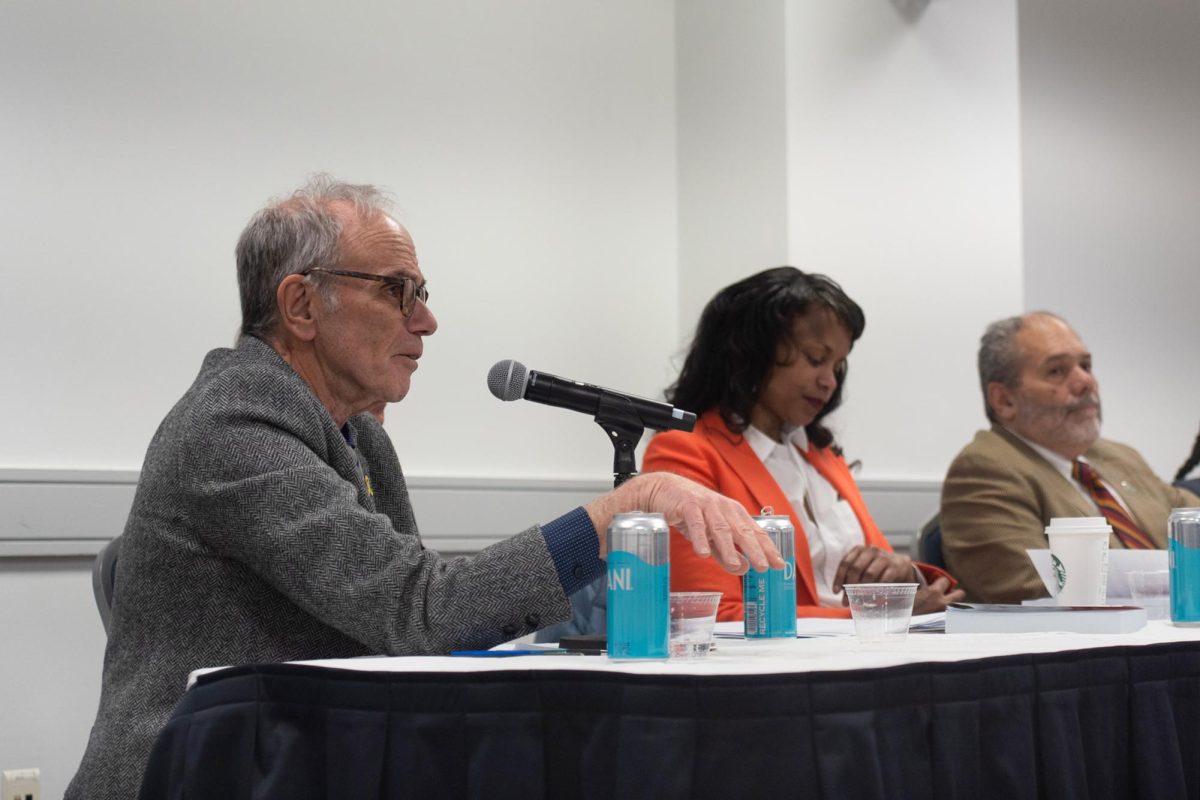Former Sen. Jim Webb, D-Va., discussed his military experience and addressed a controversial article he wrote nearly 40 years ago about women in combat at the Marvin Center Amphitheater Wednesday.
During his time as a senator between 2007 and 2013, Webb said his ability to stick to his beliefs was a source of contention between him and other members of his party – but it was also a source of personal pride.
“I’ve never changed anything that I believe in order to fit a peer or constituent. That’s one of the things I’m proudest of during my time in the United States Senate,” he said. “There was not a vote that I took that I couldn’t justify in terms of my own political beliefs.”
Webb said he was able to stay loyal to his own personal convictions so consistently in his many careers because of the time he spent serving in Vietnam. After returning home, Webb said he arrived in a country that was divided over strong opinions about the morality of the war.
Webb added that it was this divisive rhetoric that encouraged him to begin writing his first novel about the Vietnam War during a heated discussion in one of his classes at Georgetown University, where he obtained his law degree.
“I thought, ‘what if I could just put these people into a marine unit for six months and have them go through what these people went through and the moral decisions that had to be made every day in these areas? If they were intellectually honest, what would they say right now?’” he said.
The discussion was part of the University’s fourth annual Leadership Education and Development speaker series, organized by the Department of Organizational Science and Communication, that highlights speakers who have learned leadership skills through military experience.
Webb also addressed a Washingtonian article he had published in 1979 titled “Women Can’t Fight,” in which he said women should not be allowed to have combat roles in the military. Webb has repeatedly been slammed in recent years for the article, in which he criticized women who attended the Naval Academy and called the academy’s largest residence hall, which housed about 4,000 men and 300 women, a “horny woman’s dream.”
“I did not expect the article to blow up the way that it did, but whenever you try to suppress dissent, the lid really comes off,” he said. “It was not a hit job. This was a different time. The country was not ready for this and the military was not ready for this.”
He added that while he was secretary of the Navy from 1987 to 1988, he created a task force of 28 senior field grades, half of them female, to determine the “permissible roles” of women in the Navy.
“We opened up more billets to women than any previous secretary of the Navy in history,” he said. “That, to me, is how you should take leadership and address problems instead of throwing word bombs at each other.”





